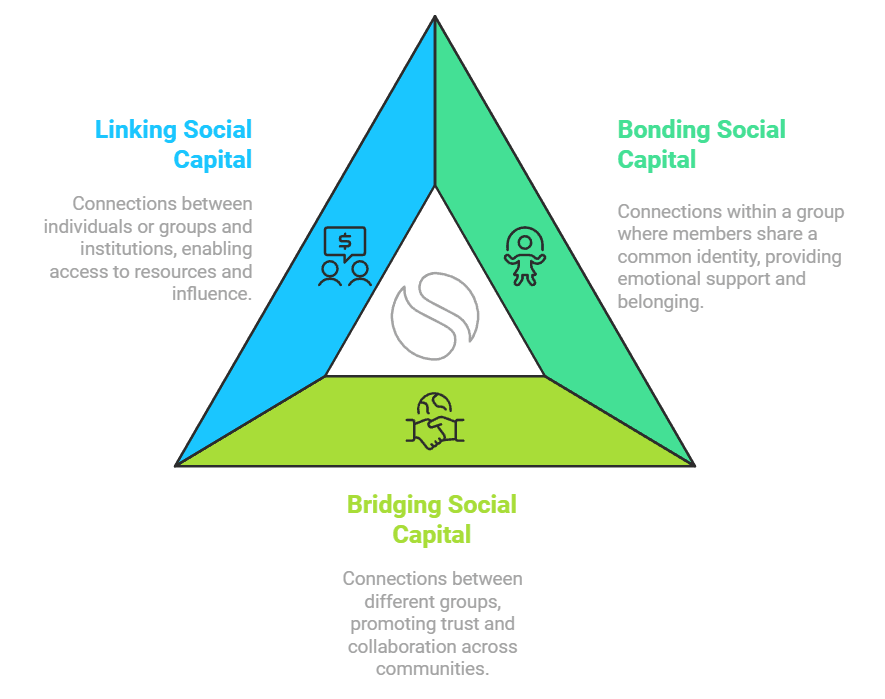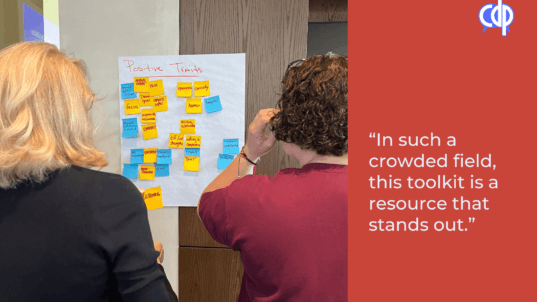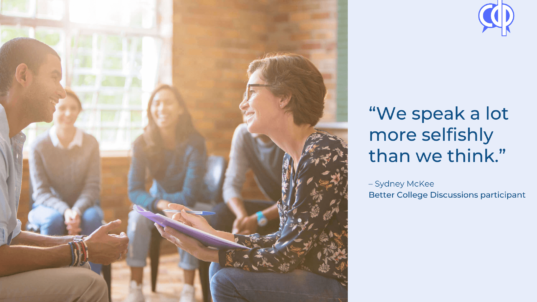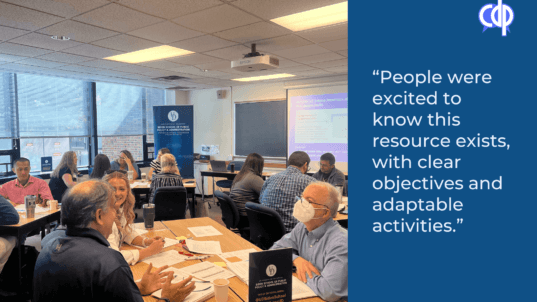Kim Allonce is redefining how Haitians tackle their most pressing challenges. Drawing on years of research and his deep belief in the power of honest dialogue, he developed the Inclusive Dialogue Framework—a tool to help communities build trust, resilience, and cohesion. To add to his skills, Kim trained to become an Interactivity Foundation Collaborative Discussion Coach under the umbrella of IF’s Collaborative Discussion Project (CDP) in late 2023.
Inspired by what he’d learned in this training, Kim asked for IF’s support in developing a special Inclusive Dialogue IF Facilitation Certificate Program, to be delivered in partnership with the Coalition for Inclusive Dialogue in Haiti, that would use activities from the Collaborative Discussion Toolkit alongside concepts from the Inclusive Dialogue Framework. This enabled him to train students in facilitating community discussions using CDP tools and techniques, with the ultimate vision of empowering Haitians to address shared challenges collaboratively and envision a stronger future for their country.
In this first story about the certificate program, learn more about Kim’s Inclusive Dialogue Framework and what it aims to achieve.
Developing the Inclusive Dialogue Framework
The idea for the Inclusive Dialogue Framework started with Kim’s doctoral research at the University of Central Florida, where he explored the intersection of public deliberation and social capital in his home country of Haiti. He found a common assumption that because of Haiti’s struggles, social capital is lacking–that is, there is a lack of social cohesion, trust, and the ability of people to come together for collective action. However, Kim’s research challenges this narrative. “Social capital in Haiti is complex—it functions somewhat like cholesterol, with both good and bad aspects,” he explains.
The central idea is that good social capital brings communities together, promoting trust and cohesion, while bad social capital can lead to exclusion, corruption, or political favoritism. The Inclusive Dialogue Framework focuses on developing the ‘good’ social capital. This requires creating spaces where people can connect honestly and take collective action without being held back by negative dynamics or corruption.
Importantly, Kim sees the Framework as a key tool in laying the foundation for a national dialogue–something Haitians have been calling for for years. By implementing a series of stages designed to progressively build up individual and community-level bonds, Kim’s goal is to support culture change and improve social capital in the country.
It all starts with honest self-reflection. “The first dialogue is where individuals have conversations with themselves,” says Kim. As a result of this first step, people come into later discussions with a stronger sense of personal sovereignty and a readiness to engage openly.
The Importance of Lakou Conversations
The second stage of the Framework is the lakou conversation, a concept that draws from Haiti’s rich cultural traditions. A lakou is a yard or a common space shared by different families or households–a place where people come together naturally. Kim wanted to recreate that kind of environment in a structured dialogue as a communal space for people to talk openly about issues they care about.
Lakou conversations are about bonding social capital—connections that form within the community. “It’s about people coming together to address an issue or solve a problem they share in common,” explains Kim.
Lakou can be interpreted in English as “local, authentic, knowledgeable, open, and unconditional”—qualities that define a genuine lakou exchange. People are supported to “show up as themselves, ready to listen and learn, without hidden agendas,” adds Kim, because when people engage on this level, they build the trust needed in order to face bigger issues together.
From Bonding to Bridging
The Framework doesn’t stop with lakou conversations. Once participants have built bonds within their immediate communities, they move to intergroup dialogues. “For intergroup dialogues, you need to have a little bit more social capital, and your deliberative skills have to be stronger,” notes Kim, “which is why we start with the lakou conversations to build those up”.
The intergroup dialogues bring together people from different social, political, or even ideological backgrounds—people who might not usually engage with each other, or who may even be in conflict. The goal here is to build bridging social capital, connecting people across divides. It gives people the chance to address misunderstandings and work toward common ground.
“Intergroup dialogues are conversations between people who may have distinct social or political features, or who might be in conflict.”
Citizen Assemblies
Kim’s long-term vision is to get to Citizen Assemblies, where individuals from across Haiti would come together to address national issues collectively. The assemblies represent the linking social capital stage of the Inclusive Dialogue Framework, where people are not only connected to each other but also to institutions and decision-making processes.
“These assemblies are about more than just dialogue—they’re about creating real solutions for the future.”
Recently Kim spoke at a conference on national dialogue in Haiti, and shared ideas on how Citizen Assemblies could play a part. To make this vision a reality, he has been training university students as facilitators using activities from IF’s Collaborative Discussion Toolkit, partnering with IF to co-design a special CDP Certificate Program. These students have gone on to conduct lakou conversations, and Kim hopes they will eventually act as catalysts for the assemblies. His hope is that these students will spark a domino effect, creating more dialogue and trust across the country.
Looking ahead
Kim acknowledges that challenges remain, particularly in expanding the program and maintaining momentum. But he remains optimistic about the Framework’s potential to transform communities across Haiti.
“The hope is that people are going to embrace inclusive dialogue as we move forward,” Kim says. “When people come together in genuine conversations—rooted in our own culture and values—that’s when real change can happen.”
Students trained by Kim in the Inclusive Dialogue IF Facilitation Certificate Program are already hosting lakou conversations on a range of topics in Haiti. Each dialogue is a step toward a stronger, more united Haiti—a country where trust, collaboration, and inclusivity will pave the way for lasting change.
Your Invitation to Collaborate
The Collaborative Discussion Toolkit is free and accessible to anyone interested in promoting inclusive, thoughtful dialogue. If you’d like to introduce these skills in your own community or learn more about hosting a workshop or specialty Certificate Program, reach out to us.
👉 Start using the free Collaborative Discussion Toolkit
👉 Reach out for support running a session for your team or group
Learn more about the Coalition for Inclusive Dialogue in Haiti, or read an overview of types of social capital.




